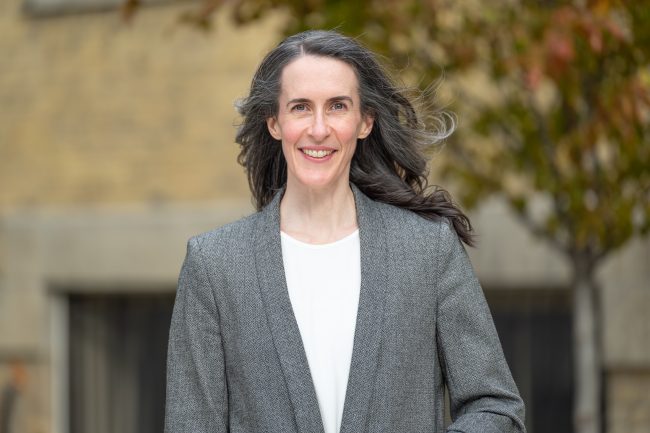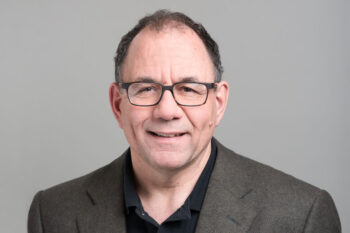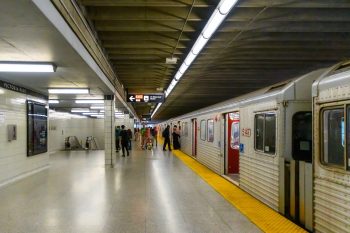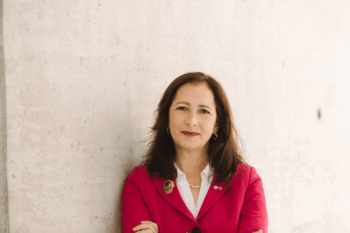A joint project between the Institute for Studies in Transdisciplinary Engineering Education & Practice (ISTEP) and the Graduate Centre for Academic Communication (GCAC) will explore how to prepare U of T Engineering graduate students to become effective communicators. Heading this initiative is Fiona Coll (ISTEP), who assumed a three-year faculty position as Assistant Professor, Graduate Communication in Engineering.
Coll will begin her work this fall with a Faculty-wide needs-assessment process. She spoke with writer Natalia Noël Smith about the importance of normalizing communication skills for graduating students and why it matters.
Let’s talk about the role of engineering communication at this moment in time and why these skills matter.
Some of the big challenges humanity is facing, from climate change to our handling of the pandemic, are connected to the difficulty of communicating complex information. To work on these problems requires understanding how rhetorical effectiveness or ineffectiveness is key to the impact of technological innovation. Rhetorical effectiveness is about information-wrangling — explaining complex, difficult, in-progress ideas — and steering through dynamic informational situations. Even broaching these conversations with students who are in the process of grappling with complex informational situations is important. We all need to learn how to better facilitate our understanding of complex information; we’re going to have to figure things out together.
Could you describe the focus of your work in this role?
The aim of this position is to assess existing communication-skill support for graduate students, discover areas of demand for new communication-related programming and devise creative ways of streamlining and integrating both into a robust, long-term initiative.
Fundamentally, this work is about customizing and strengthening the professional development opportunities that will help engineering graduate students communicate their knowledge effectively and compellingly.
Tell us a bit about your background, and the experience you bring to this new initiative.
I’ve long been fascinated by how language works as a dynamic, emergent field of relations that we shape and shift in order to discover and articulate our sense of the world. As we’re doing so, of course, language shapes us by making cognitive frames for observing, processing and thinking differently available. Moments of effective communication can feel like tiny miracles, especially in complex communicative contexts.
I’m especially interested in how communication happens across boundaries, whether those boundaries define cultural groups, academic disciplines or other language communities. I’ve navigated this issue in my own interdisciplinary studies: I have undergraduate degrees in cell biology and cultural studies, an MA in critical theory and a PhD in English literature, in which I studied the relationship between technology and creativity in nineteenth-century Britain. I’m looking forward to developing communication-skill programming that addresses the uniquely boundary-defying aspects of engineering as a field.
Finally, I bring to this role experience in equitable, accessible teaching practices. I’m thrilled to be joining a Faculty that is as committed to inclusive education; it’s wonderful to work in a space that recognizes the significance of providing all graduate students with holistic, scholarly and professional skill-development support, including opportunities to develop their communication skills in intentional, equitable ways.
How might developing these communication skills improve a graduate student’s experience?
In the short term, I hope that this position will relieve some of the immediate stress that students feel around the types of communication they have to generate in their courses and projects by offering them opportunities for timely, specific, flexible skill development.
There’s also a medium-term effect that I hope this position will generate, which is to encourage students to think early and often about communication-skill development as part of their professional development.
What I’m most excited about is the potential longer-term effect of normalizing communication-skills development for graduate students: I hope they’ll leave their graduate program able to embrace the idea that communication development is a life-long process and confident in their abilities to adapt to whatever communication demands arrive before them.
What could those communication demands include?
There are certain communication types that are understood to be part of the experience of being a graduate student: writing or presenting course documents, project journals, email requests, grant applications, research proposals. As a graduate student moves into being a researcher or a professional engineer, those communication types expand to include protocols for engagement with different materials or entities, grey or white papers, requests for information, case summaries, policy documents, negotiations, interviews. More and more, new media forms might be involved in these sorts of communications, as well as new ways of communicating visually or in audio form, and new audiences for these communications.



